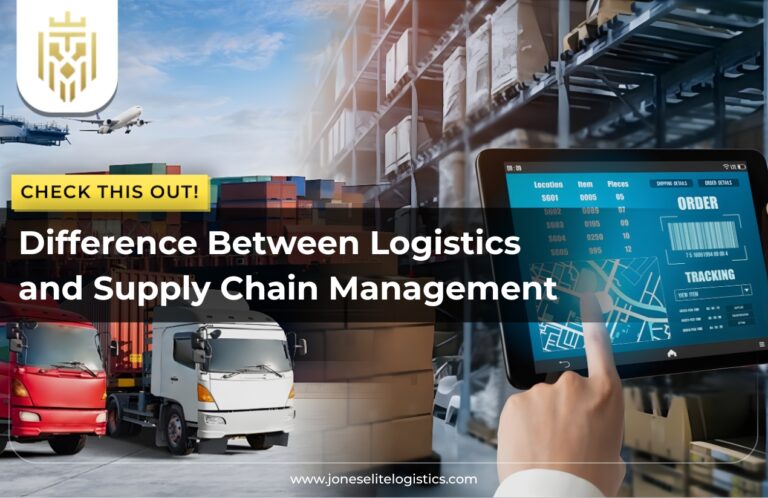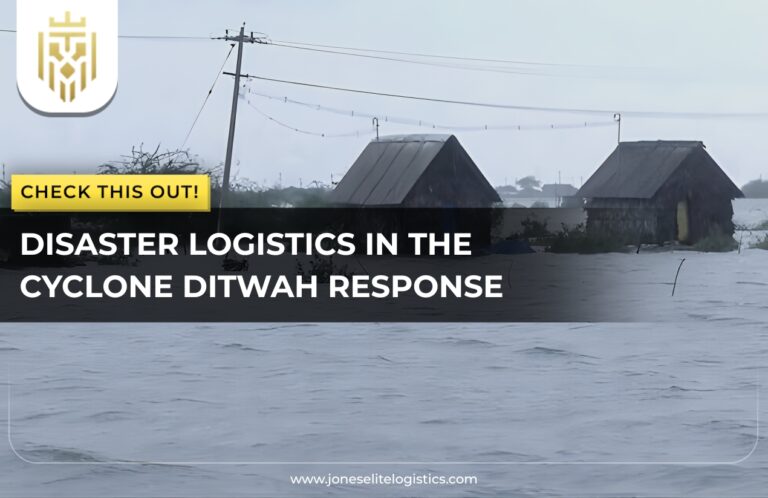What is Charter Shipping?
Charter shipping is when companies hire ships to carry goods without owning them. It facilitates international commerce, allowing firms to utilise flexible transportation services and a seaworthy ship and adhere to international shipping regulations and agreements without incurring expenses related to fleet maintenance, management, and safety.
People Involved in Ship Chartering
Ship chartering is a process of coordinating a complicated maritime activity by several parties. Every position, such as brokers, ship owners, and others, makes the agreements run smoothly, within the rules of the flag state, and to get maximum profits in terms of freight. Collectively, they strike a balance between contractual obligations, operational effectiveness, and collective responsibilities that are essential in ensuring efficiency in cargo logistics networks.
Charterer
A shipping charterer is a shipowner who is contracted to transport cargo. Their focus is on controlling risk during shipping as a method of reducing financial risk and using contracts to obtain more favourable terms in cargo logistics. Their choices determine profitability and efficient involvement in international trade.
Ship Owner/Operator
The shipowner or operator owns an operationally and safely seaworthy vessel. They manage vessel ownership and maintain flag state requirements and efficiency. They also have the role of crew, maintenance, and incorporation of fuel-efficient ships in their maritime operations to balance the costs against environmental responsibilities.
Ship Broker
Ship brokers are the agents providing a link between charter shipping buyers and ship owners in contract and freight revenue discussions. They match cargo requirements and ship supply to allow scalable contracts. Brokers also make sure that the International Maritime Organisation rules are followed and also make sure that complex ship chartering negotiations and logistics of international cargoes are transparent.
Types of Charters

The various types of charters are scalable in shipments, as they can be customised to meet various requirements. Regardless of the fixed trips or longer arrangements, both help in creating flexibility in cargo logistics. Contracts are designed in a way that maximises freight revenues and enhances efficiency to provide stable support to global trade growth.
Voyage Charter
A voyage charter is based on the payment of a one-way trip between ports. The charterer in shipping takes care of cargo expenses, and the shipowner takes care of the ship operations. This aids cargo logistics in assuring timely transport in accordance with the requirements of maritime laws and conventions.
Time Charter
In time charters, the shipowner supplies a seaworthy ship, and the charterer manages scheduling and cargo logistics. It gives businesses freedom and risk management in shipping, efficient cost allocation and improved flexibility to meet the fluctuating world trade needs with reliable freight revenues.
Bareboat Charter
A bareboat charter places all the operational liability on the charterer in the shipping industry, including crew and adherence to flag state regulations. They become the owners of vessels in this sense, making them efficient in terms of operational efficiency and compliance and exploring long-term scalability in shipping and improving resilience in complex maritime operations.
Yacht Charter
Yacht charters are also more about recreation than cargo transportation, which provides flexibility in personal transportation. Although not intended to trade internationally, they still must meet seaworthy vessel requirements and adhere to International Maritime Organisation codes, making sure they offer safety, reliability, and luxury in their specialised ship chartering agreements and contracts.
Process of Ship Chartering

The ship chartering procedure comprises the cargo identification, selection of the broker, matching of the vessel and agreements. In compliance with the laws of the flag states and conventions of the maritime, enterprises maximise freight revenues and facilitate the effective performance of maritime processes, contributing to the stable increase in the efficiency and flexibility of world trade.
Identifying Cargo & Voyage Requirements
The process of chartering starts with determining the type of cargo, volume and route. Such information affects ship selection, ship operations, and freight earning expectations. Effective cargo logistics and efficient risk management in shipping can be achieved through proper evaluation and assist the business in balancing costs with demands without violating regulations.
Choosing a Ship Broker
A ship broker facilitates contract negotiations and also complies with the requirements of a seaworthy vessel. They bring charter shipping clients and ship owners together whilst ensuring maximum scalability in shipping, allowing efficient cargo logistics, and creating more opportunities in global trade through favourable market conditions.
Finding Suitable Vessel
The right ship guarantees safety, fuel-efficient ships, and smooth operations. Brokers examine capacity, age and adherence to flag state rules. By choosing a seaworthy ship, businesses may get operational efficiency, enhance sustainability, create greater freight revenues and assist in wider international business.
Negotiating Freight Rates & Operational Costs
Negotiations on freight rates are determined between parties based on cargo size, route, and market conditions. Good talks drive up freight revenues and promote scalability in shipping. Ship brokers negotiate conditions that are equitable to both the ship owner and charterer in the interest of shipping whilst in shipping principles that address compliance and risk management.
Charter Party Agreement
The charter party agreement is a legal agreement between the shipowner and charterer which is binding. It provides operational terms, liabilities and maritime operations standards. Clarity ensures that both parties are secure, aids cargo transport and follows the International Maritime Organisation requirements on sustainable and safe transport.
How Charter Shipping Helps Businesses?

Charter shipping helps companies to keep costs down, provides scalability in shipping and gives flexibility in cargo logistics. It minimises vessel ownership and capitalises freight revenues, another crucial solution for every company that is pursuing global trade expansion strategies.
Control over Cargo & Logistics
When businesses select types of charters to meet their needs, they have control over their cargo logistics. This guarantees efficiency, adherence to flag state requirements and certain freight revenues. It assists charter shipping customers operating with supply chains without spending large amounts of money on owning vessels or permanent fleets.
Flexibility in Fleet Use
Chartering also allows organisations to use demand-specific fleets, making shipping scalable. It limits the use of non-reusable ships and promotes the use of fuel-efficient ships. This allows companies engaging in international trade to flexibly adjust capacity whilst managing both operational and contractual maritime operations.
Reduces Capital Cost
Businesses reduce capital expenditure by not owning vessels in order to increase cash flow. The chartering contracts enable the allocation of resources to cargo logistics or development. The model also guarantees predictable freight revenues, which facilitates stability in the chartering of ships, in addition to providing cost-effectiveness to businesses engaged in international trade.
No Operational Risks
Chartering removes operational risks, since crews, maintenance and compliance are managed by ship owners. The shipping charterer is not subjected to the complexity of maritime operation and can concentrate on cargo logistics and enjoy the efficient transportation according to the International Maritime Organisation regulations and principles.
Global Reach
Charter shipping expands business horizons along various trade routes and enables the business to engage in international trade. It allows access to seaworthy ships and adherence to shipping rules and regulations, ensures that cargo moves efficiently and maximises freight earnings and long-term competitiveness in global cargo transportation markets.
Professional & Efficient Cargo Movement
Chartering offers the professional shipment of goods with experience in managing the operations at sea. Brokers match the services with demand, and ship owners make a seaworthy vessel. This increases the efficiency of cargo logistics, enhances freight revenues and facilitates smooth engagement in competitive global trade by providing specialised and reliable services.
Challenges in Charter Shipping
Despite these advantages, charter shipping has some associated problems, including cost volatility, delays and risks. Shipping requires businesses to negotiate flag state regulations, insurance, and risk management to ensure stable freight revenues, compliance, and efficiency in maritime operations and macro-level cargo logistics systems.
Fluctuating Costs
The changes in the market affect freight income, which affects the costs and availability of cargo logistics. Volatility is caused by fuel prices, port costs and demand fluctuations. The introduction of fuel-efficient ships and flexible scalability of shipping solutions will help reduce the risks and sustainability of ship chartering business arrangements.
Need for Insurance
Ship chartering insurance protects against accidents, damages or loss. It ensures risk management in shipping that covers liability in maritime operations. Shipowners and charterers in the shipping business are both dependent on insurance to stabilise freight revenues and confidence in growing global trade.
Risk of Delays & Damages
Losses and delays interfere with the logistics of cargo and decrease freight revenues. Maritime laws and conventions and the planning of effective maritime operations are essential. Good contracts between ship owner and charterer eliminate risks, which guarantees seaworthy ships and sustainable development of competitive global trade markets.
FAQs
1. How does charter shipping differ from container shipping?
Charter shipping is renting out whole vessels based on customised cargo requirements, whereas container shipping is based on standardised units. The first one has the flexibility of cargo logistics, and the latter is dedicated to fixed routes.
2. Which industries rely most on charter shipping?
Oil, coal, agriculture and steel industries are highly reliant on charter shipping. Demand is supported by bulk commodities, which allow ship owners and charterers to maintain efficient global trading based on large-scale transportation.
3. How long does it take to finalise a charter party agreement?
Negotiations can take days to weeks to finalise a charter party agreement. Brokers facilitate the process between charterers and ship owners by making sure they understand what is expected of each party so that maritime operations and cargo transfers run smoothly.
4. Is charter shipping only for international trade?
No, charter shipping is used both locally and internationally. Although it plays a key role in international trade, it is also being used by businesses to handle regional cargo logistics, which provides flexibility in transportation beyond cross-border contracts.
5. Can small businesses benefit from charter shipping?
Yes, small businesses have the advantage of scalability in shipping, lower capital requirements, and flexibility. It offers access to seaworthy vessels without owning the vessels, enabling them to access competitive cargo logistics markets at cost-effective rates.









